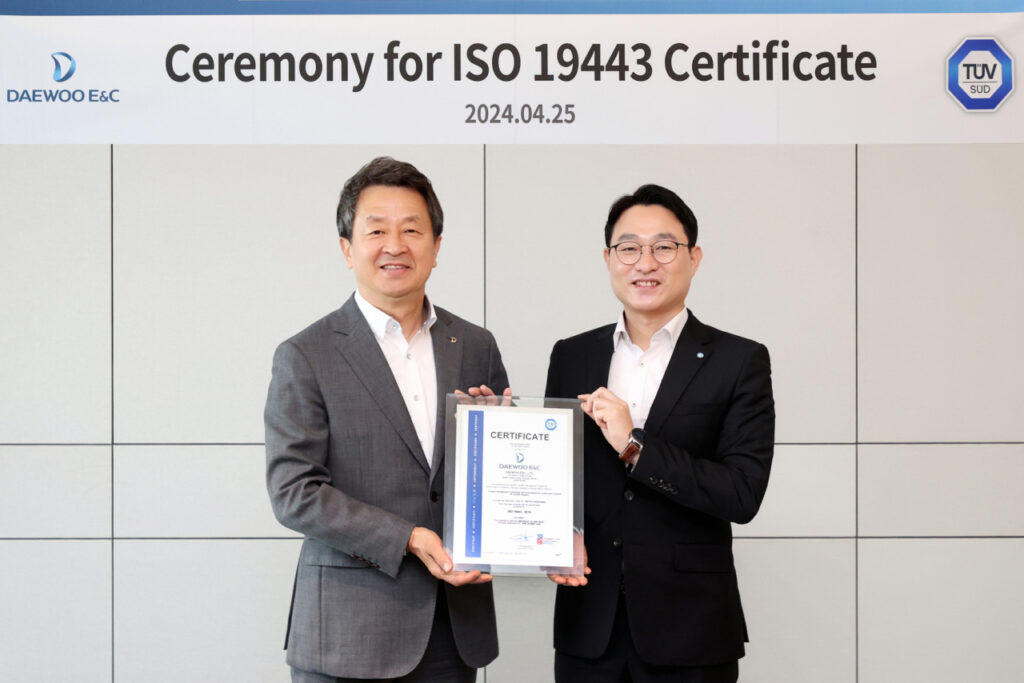Daewoo E&C is expanding its environmentally friendly technology portfolio amid growing calls for green energy solutions to tackle the climate crisis.
One of the construction company’s notable innovations is its greenhouse gas reduction technology called DECO2, a proprietary continuous process for capturing and recycling carbon dioxide, which was first developed in 2012.
This technology captures carbon dioxide and reuses it as a raw material. The by-products from this process can be used immediately in desulfurization units at thermal power plants, and can be processed for a variety of uses, including as fertilizer and building materials.
DECO2 technology was first recognised in 2012 for its ability to capture 10 tonnes of carbon dioxide per day and was selected as a national research project.
From 2015 to 2020, Daewoo E&C worked with Korea Southeast Power and the Korea Testing and Research Institute to successfully develop technology to capture 40 tons of carbon dioxide per day.
The company is currently developing technology that will enable it to capture 400 tonnes per day.
In response to the recent surge in crude oil prices and the increased demand for nuclear power due to the CF100 energy initiative, Daewoo E&C is expanding its investments to ensure the quality and safety required for nuclear construction. The company was recently selected as the preferred bidder for the construction of a nuclear power plant in the Czech Republic.
As part of this, Daewoo E&C became the first Korean construction company to obtain ISO 19443 certification in April 2019. This certification is issued by TUV SUD, an international certification body in Europe, and is a mandatory requirement for the supply of nuclear equipment and services in major European countries.
Since the 9/11 terrorist attacks, Daewoo E&C has been incorporating this stability evaluation technology into nuclear power plants both at home and abroad in response to the mandatory assessment of aircraft crash stability for nuclear power plant construction. In addition, to prevent radiation leakage, the company has acquired technology to analyze the heat of hydration of concrete structures, and is able to deal with a variety of issues, from small cracks to earthquakes and external impacts.
The company is also expanding into the offshore wind power generation field. In June, Daewoo E&C and Monobase Wind, a Dutch offshore wind power company, jointly developed a 15-megawatt floating offshore wind power generation model and received approval in principle for the conceptual design from the Norwegian classification society Det Norske Veritas.
The jointly developed “Movable Spar (Single Point Anchor Reservoir)” can ensure the stability of floating structures even under extreme conditions, such as wind speeds of 61 meters per second and wave heights of 11.5 meters in the Tokai region.
The model is designed to take on different configurations for different periods to ensure stable operation: it is semi-submersible with high ballast during assembly and transportation, and transforms into a spar with lowered ballast during operation and installation.
“Amid continuing extreme weather and growing interest in environmentally friendly businesses, we continue to invest in a sustainable future. We will make every effort possible to reduce greenhouse gases and contribute to building a carbon-neutral society,” a Daewoo E&C official said.

